#Army life
Explore tagged Tumblr posts
Text
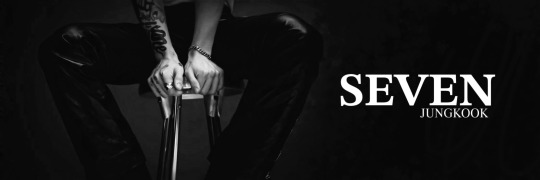











⠀⠀⠀⠀⠀⠀⠀⠀⠀ ⠀⠀ ⠀𝗃𝗎𝗇𝗀𝗄𝗈𝗈𝗄 𝗅𝖺𝗒𝗈𝗎𝗍𝗌
⠀⠀⠀⠀⠀⠀⠀⠀⠀ ⠀
#𝗋𝗈𝗆𝖺𝗇𝖼𝖾⠀⠀𝓲𝒏⠀⠀𝖿𝖺𝗇𝗍𝖺𝗌𝗒⠀⠀♥︎#kpop moodboard#layouts twitter#messy moodboard#bangtan#bts#bts jungkook#soft#bts jungkook icons#bts jungkook moodboard#jungkook#jeon jungkook#jeon jungguk#jungkook moodboard#jungkook layouts#seven jungkook#jungkook seven#seven by jungkook#jungkookie#jungkook bts#bts moodboard#bts army#bts messy moodboard#bts layouts#jeon jeongkook#army life#bts icons#bts headers#jungkook icons#jungkook headers
179 notes
·
View notes
Text
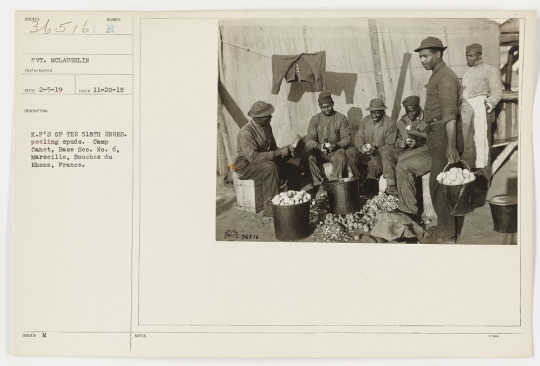
“Peeling spuds”
Record Group 111: Records of the Office of the Chief Signal OfficerSeries: Photographs of American Military Activities
Photograph of six African-American soldiers working Kitchen Patrol peeling potatoes. Four men sit on wooden crates peeling. Two large buckets are in front of them, and one is filled with potatoes. Many potatoes are on the ground at their feet. To the right of the picture a man is standing holding another large bucket of potatoes. Another man on the right side of the photograph is looking on. Behind the men is a wooden fence. A pair of jodhpurs or perhaps long underwear hangs on a clothesline strung just above and behind the men.
The photograph is mounted on a card identifying the photographer as Pvt. McLaughlin. It was taken on 11-20-2023. The original caption reads, “K. P.’s of the 518th ENGRS peeling spuds. Camp Canet, Base Sec. No. 6, Marsaille, Bouches du Rhone, France.”
#archivesgov#November 20#1918#World War I#K.P. duty#WWI#1910s#us army#army engineers#african american history#potatoes#army life
37 notes
·
View notes
Text
Beyond the Uniform: How Army Changes Your Life | TNT Show
In our debut episode, we're honoured to have Col. BP Singh, an army personnel, sharing their captivating story. Join us as we delve into:
• The untold challenges and triumphs of life in the defence forces
• The making of a soldier: training, discipline, and sacrifice
• Balancing duty and personal life: the highs and lows
• The impact of army life on mental health and relationships
• Inspiring stories of bravery, camaraderie, and patriotism
Watch the full video by:- clicking here
Tune in for an authentic conversation that goes beyond the uniform. Subscribe to @tntshowpodcast for more episodes featuring inspiring individuals from various walks of life.
2 notes
·
View notes
Text
It's snowing so damn much here. Like damn! We're not even getting this much snow back in Tiny soda can.
2 notes
·
View notes
Text

Saluting the brave hearts of the Indian Army on Army Day! 🇮🇳
Your courage inspires us to build a stronger nation, one structure at a time. Together, we honor your dedication and sacrifice.
https://www.instagram.com/p/DE1TqgsvhKC/?utm_source=ig_web_copy_link&igsh=MzRlODBiNWFlZA==
Visit us for more information.
#construction#home decor#home#realestate#builders#apartment buildings#architecture#commercial#buildings#dream home#indian army#army#army life#military
2 notes
·
View notes
Text
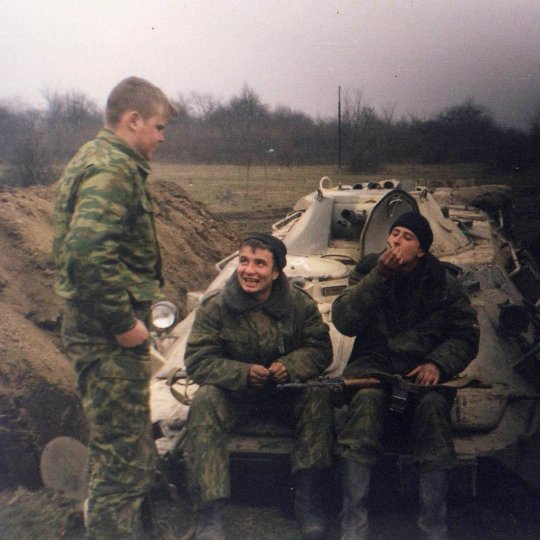
23/02/2000
#smoking#cigarette#аркадий бабченко#фотоархив#чеченские войны#чеченская война#chechnya#chechen wars#chechen war#война#бабченко#combat footage#soldiers#military#2000#2 чеченская война#arkady babchenko#army life#uniform#army uniform
11 notes
·
View notes
Text
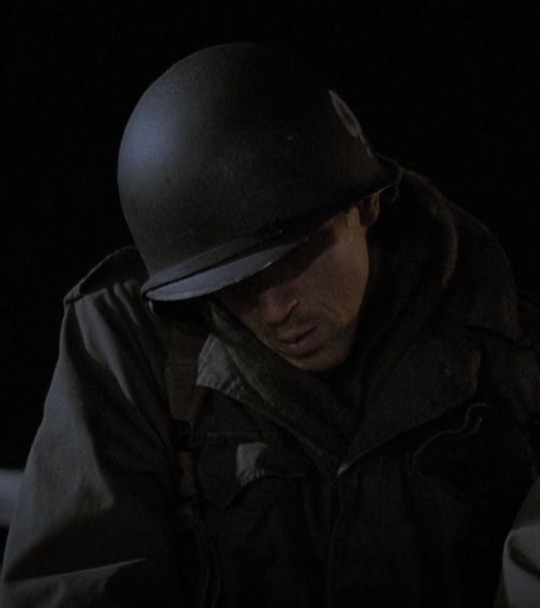
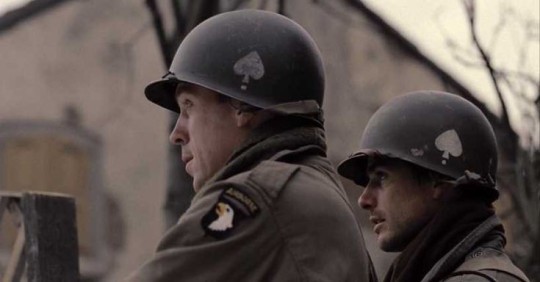
war isn't home. don't let your ego or scars fool you.
---apollo---
23 notes
·
View notes
Text

‘𝐅𝐑𝐈𝐄𝐍𝐃𝐋𝐘 𝐅𝐈𝐑𝐄’ 🔥
8 notes
·
View notes
Text

This is how it feels to listen to Taylor and Bangtan’s music. To me, it feels like Taylor’s music holds my hand and let’s me cry and emote all the pin away while bangtan’s music wraps me up in a warm hug and motivates me to find my own light🥺❤️🫂
#cryinginmyroom#crying in my room again#taylor swift#swiftie#bangtan army#bts army#army life#bts namjoon#bts jhope#bts#bangtan comfort#yoongi bangtan#bangtan#bangtan incorrect quot#ashinsmoke#bts taehyung#bts I love you#love yourself
7 notes
·
View notes
Text
Anonymous asked: I used to be in British Army (I did two tours in Afghanistan) and then I joined ‘civvie street’. I found it hard because I couldn’t keep my anger in check at how shallow and self-centred some of the guys I worked with really were. They really felt sorry for themselves. I’m in a better place and a different job with great positive people. I know you’re an Afghan vet and you now work in the corporate world full of pyscho shit bags so how have you handled anger at work?
Thanks for sharing and I have to say I totally understand where you’re coming from. Yours is a common theme amongst many returning veterans from war or indeed anyone who’s served in the armed forces and then makes the jump over to the civilian world. There’s always going to be an initial disconnect between how we did things in the army - or at least how we were trained to - and how things are done in the civilian professions (corporate other otherwise).
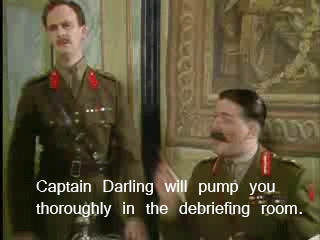
I don’t think we should be glamourising army life too much as we all know the crap that goes on within our regiments and the senior army brass in general. I don’t think we should be saying one is superior to another, it’s just different. Where they are the same is human nature which can bring out the worst or the best in people. As one vet friend, now a corporate lawyer, told me once, It’s a matter of sussing out what the ‘rules of engagement’ are. I’m glad though that you landed on your feet and you have found a second wind.
I can empathise with you about the anger part. But I’m not quite the type to get overly angry. I can have a cold fury but rarely does my anger boil over. I’m just not built that way. Of course it doesn’t mean I don’t get frustrated or super annoyed at people.
I remember very well after leaving the army world behind and never setting foot in a combat helicopter again, it was painful because of the camaraderie forged through shared adversity ( courage and cock ups, mostly). After going back to grad school I remember well the interviews I had lined up with corporates in the City I was interested working for. Nearly all of them would ask me questions like “have you had any life enhancing experiences?” Or “can you give an example where you handled a project under pressure?” Or “How do you handle stress?” I would look at them and think ‘are you kidding me? Have you properly read my CV/resumé?”
As annoying as I found such questions, I bit my tongue and smiled, ‘Yes, flying missions over a battlefield dodging a missile attack aimed at my arse whilst also avoiding lethal Taliban ground fire attack. One could say that was fucking life enhancing.” But I didn’t. I would point to something else from outside army life that they could relate to. I must have said something right because I got hired. But yes, I was a little annoyed by the disconnect.
But the anger still there isn’t it? I can empathise with that too.

Homer warned us that xόλος νόον οιδάνει. (anger inflates the mind). But the rage can be real, especially in the pressure world of work. Working in highly competitive corporate environment with people who are super smart and over-credentialised - and therefore prone to neurotic mood swings and power trips - can be a stressful place to work.
From time to time all of us will experience great rage. The question is how can we deal with it effectively?
Anger at work typically surfaces when we feel vulnerable or exposed. It shows up when we feel under attack, or when something we valued or hoped for is at stake. It is sometimes posited as a protective emotion, arising when we feel threatened. According to neuroscience, this triggers the amygdala which overrides rational thought and causes strident action and reaction. The “amygdala hijack”, as it has come to be known, is evident when you see a colleague “acting out”. Slamming down a phone or shouting at a direct report is nature’s way of externalising anger by venting aggression.
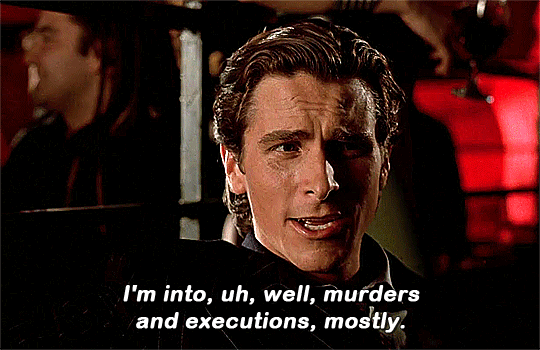
A common alternative is suppressing anger. This has a pressure cooker effect and can lead to explosive results later on. Thus, both venting and suppressing anger has negative consequences and can be injurious to our relationships, career and health.
But where does it all come from? The best I can suggest is to look at at the origins of anger. Our relationship to this most primal emotion is formed early in life.
Our parents are the first “leaders” we encounter, in the sense that they give us protection, provide for our needs and model the way to behave. Their reactions to anger when we were children shape our own anger responses.
A good hypothetical example might be if a father becomes incandescent when a child is late for dinner for the umpteenth time, the child probably reacts in one of three ways: returning the anger (acting out), taking a neutral response (sulking or passive aggression), or moving away from the source fearfully (especially if Dad is a big fellow). If returning the anger was permissible in your household, then storming around the workplace later in life may seem quite natural. If you were neutral, you may have been suppressing your irritation.
If you were scared, as many children are, then you probably built coping mechanisms to avoid making people angry, or if the anger was unavoidable, capitulating and backing down. If this was the case, you probably make an easy victim for a workplace bully today.
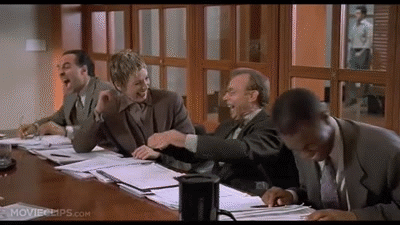
I’ve read stuff by leadership development scholars at INSEAD business school who’ve done some research on this. They started by figuring out which of the primary negative emotions - anger, sadness or fear - each of us is most subject to, by asking what happens when things don’t materialise the way we want. They found that more than 60 percent of male respondents in their studies chose anger over fear or sadness. For women it was more evenly split.
Problems are exacerbated when anger is combined with authority. Both men and women resent angry bosses. They often feel helpless and unable to exercise their own authentic emotions as a response; the result of this “bottling” is a kind of anger turned inwards, which shows up as a loss of self-esteem. Sometimes this can lead to the person kicking down the frustration to his or her own direct reports or trying to buffer it. I often discover that suppressed emotions are leaking out somewhere else, either at home, or worse still through self-destructive behaviour like alcohol abuse (I was never an alcoholic but I did lean into it heavily but thankfully got yanked out by those close to me).
Interestingly enough these same researchers found another unexpected corollary in that conflict avoidance is value destruction. Business is business: Tough conversations or disagreements need having. Being passive, or even worse passive aggressive, leads to wrong decisions being made by overbearing bosses. In most cases, we have a responsibility to confront. This is easier said than done of course given how power works inside modern corporate structures.
In this context I would go further and say not all anger is destructive but can actually be productive. I’ve seen research evidence to back up this claim for the professional benefits of anger which are mostly in relation to negotiation and leadership situations.
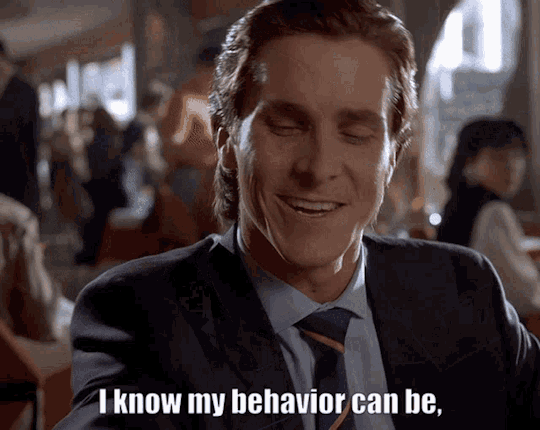
In studies of negotiation, people who expressed anger had better outcomes. However this is usually only when the angry party has the greater power, or when the recipient of the rage has poor alternatives to negotiating.
A 2016 INSEAD business school study found anger in leaders can make them appear more powerful, yet less effective. Intense anger in leaders motivates their subordinates to increase their effort but also means they will be more deviant. Another study found that anger enhances performance, but only when followers have conscientious and agreeable personalities. More generally, research finds anger has positive consequences at work when it’s expressed verbally, is of low intensity and when it’s a ‘mad man’ rather than a woman (yeah, it’s that time of the month seems to be the dismissive and condescending excuse given by men). But I think that’s changing now as more women enter business leadership positions than ever before. Certainly I use anger in a very low key way and I use it strategically to motivate those under me of the high standards I expect - of course your greatest anger is reserved for yourself by holding yourself to a higher standard of performance and example.
Still, I have always wondered if some people just have a low boiling point? It’s not my temperamental nature to get over-heated, quite the opposite in fact. But I look around and I see colleagues, brilliant and hard working but seem to be constantly on edge. Although most people will occasionally experience anger at work, some people seem to have a low tipping point for anger. For example, people who usually blow their top as opposed to getting only a little angry will be more likely to experience ongoing anger at work. These people are easily provoked. People who are neurotic at work are also likely to be more angry because they have poor emotional regulation. People who show traits of psychopathy and low agreeableness are also more likely to express their anger at work, than others.
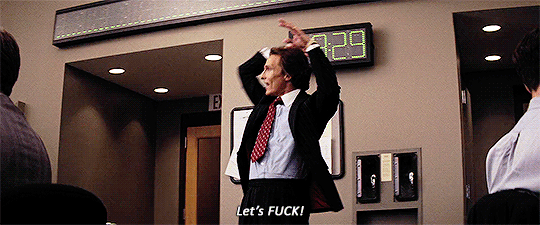
However these people tend to be more successful at work. But I think anger is probably not the cause of their success. It is more likely that anger is a side-effect of adaptive characteristics. For example competitive people are likely to be both successful and express anger more often.
But there is reason to suppose to use anger as a strategy, selectively and carefully. I have it in my tool box. Since anger is beneficial in some instances, it raises the question: should we strategically act out anger to bring about positive outcomes? Although some research supports this, other studies suggest caution. For example one Harvard study demonstrated that faking anger in negotiations is detrimental to resolving the conflict. A better strategy than faking anger is actually to communicate it when it is real, but do so in a controlled manner (for example not being abusive but telling someone you’re mad).
There’s only one type of person who seems to be an exception to this advice: those high in the personality trait “machiavellianism”. Machiavellian staff are those who operate strategically and manipulatively at work in order to achieve their goals. They can be highly angry and are likely to use it, and aggression, strategically to enhance their success. Machiavelli gets a bad rap that even his very name is a byword for amoral behaviour. I think he’s much misunderstood because he never condoned being a weasel.

But what to do?
I can only share what works for me at work. You don’t have to be a zen master to learn to regulate your emotions through mindfulness and emotional intelligence training. One simple strategy involves reducing arousal through deep, slow breathing. Take a moment and re-centre yourself.
You can also go straight to the source of your rage and see if that can be changed instead. This is not easily done, depending on the power differentials at work, however it can be best in the long run.
I think both strategies are in keeping what research seems to be saying. In other words, there is merit to both expressing and controlling anger.

Many people I know try and take their anger out of the work place. In other words, do outside activities to blow off steam. Some go all in doing a punishing gym work out. Others find it at the bottom of a Vodka bottle (not to be recommended). I’ve even known some work colleagues who train and go a few rounds in mixed martial arts (MMA) to really blow off their anger issues.
I always go for a 5 km run in the morning to clear my ahead. It helps me to see the lay of the land and plan my day like it was a mission operation and so I can see where the stress tests would be.
I also regularly fence after work - at my club in Paris - with others who can give me a good work out. It’s a great sport and I can deflate any unresolved anger with a few puncture hits to someone else. I even teach a class to children on the basics of fencing and it’s incredibly therapeutic because you need patience and empathy and there is no room for anger.The best way to melt away personal anger is to serve others and see the difference you make in their lives.
Music is another way to detox. I listen to it a lot to and from my commute to work or when I travel a lot to other countries. Trust me when you listen to opera you quickly find others are having a worse day than you.
Take Lucia from Donizetti’s comic opera, Lucia di Lammermoor. Lucia is having just about the worst week ever. Lucia’s mother has just passed away. She is in love with Edgardo, the political rival of Lucia’s brother Enrico, but Enrico has arranged for her to marry Lord Arturo in an effort to save their family from financial ruin. Lucia and Edgardo resolve to keep their love a secret in an effort to avoid confrontation with Lucia’s brother. Suspecting that Lucia still loves Edgardo, Enrico and Normanno procure a forged letter from “Edgardo” purporting that he loves another woman. Enrico shows the forged letter to Lucia on the day on which she is to marry Arturo. Distraught and betrayed, Lucia agrees to marry Arturo in order to do her duty to her family and to her late mother.

The wedding ceremony commences. Lucia is signing the wedding contract when suddenly Edgardo bursts in and declares that he and Lucia are to be married. Upon seeing the signed contract however, he flees, utterly distraught. Overcome by her misfortune, Lucia kills Arturo, leading up to an iconic mad scene, which Lucia sings while covered in her late husband’s blood.
After an exchange with her brother, Lucia collapses and dies. And you thought you were having a bad day.

Or take poor old Leporello from Mozart’s Don Giovanni. Don Giovanni is pretty much the worst - and he reminds me of a wealthy corporate client of mine. He’s a serial seducer who prides himself on the thousands of romantic “conquests” he’s made and then lies and weasels his way out of trouble. And poor Leporello is the unfortunate servant to the reprehensible Don Giovanni. Leporello is a pretty good humoured chap and tries to make light of the Don’s deeds.
However, all the good humour in the world can’t save him from being dragged down by Don Giovanni. When Giovanni tries to pull the recently married Zerlina aside during a party that he has thrown in his home, Zerlina cries out for help. And who does Don Giovanni blame? Poor, unfortunate Leporello. When the Don decides he wants to go off to seduce an unsuspecting maid, he forces Leporello to dress in his clothing and go for a walk with Donna Elvira so that he does not have to deal with her.
And what happens to our friend Leporello? Donna Anna, Don Octavio, Zerlina, and Masetto (all previously affected by Giovanni’s misdeeds) find him disguised as Don Giovanni and threaten his life. When Don Giovanni and Leporello are confronted by the haunted statue of the deceased Commendatore (father of Donna Anna, killed by Don Giovanni), who is forced to invite the terrifying statue to dinner? Yes, you guessed it. Good old Leporello. But in the end, at least it’s Don Giovanni who is dragged into the fiery flames of hell and not good old Leporello!

There are plenty of poor Leporellos cleaning up the messes of the rapacious Don Giovannis in the corporate world. At least, you can take a hot shower to wipe away the stains and comfort yourself in the knowledge hell fire damnation await the Don Giovannis of this world.
Anyway, I digress.
My concluding thought would be to say everyone has their own speed. You have to find yours.
One helpful article I recently came across was in the Harvard Business Review. It’s worth a read.
https://hbr.org/2022/04/how-to-manage-your-anger-at-work

Thanks for your question.
#ask#question#anger#therapy#work#corporate#army#military#civilian life#army life#british army#stress#culture#society#personal#opera#fencing
31 notes
·
View notes
Text
Look out for each other, military or not
I just wanted to share this story because it has really fucked me up, and I’m hoping that someone will read this and see things in another perspective that might be able to help themselves, somebody else, or both. There’s no names, locations, or specific information in this.
This story starts around two months ago, with a staff sergeant making a mistake. He drank a little, hit a car while driving, panicked, and drove away. He got caught and charged with a DUI. If you don’t know, getting charged with a DUI is an automatic chapter which separates you from the Army. Also if you don’t know, as part of this chapter process you have to do a mental health evaluation, basically it is to check of there could have been a behavioral health reason that might have caused a certain behavior to cause the indecent. However, specifically for DUIs and failed UAs, it doesn’t matter if there were BH issues or not, to the Army those are non excusable so there’s almost no way to get it excused unless your command wants to retain you. So at that point we do this evaluation to see if there are any BH issues that they might want treatment for. Anyway, I was the one doing this staff sergeants evaluation. I was pretty nervous, because it was one of the first few that I had done on my own, meaning my supervisor wasn’t in there with me to make sure I was doing it right, at that point I had learned what I needed to do and how to do it. But me being a PV2 talking to a staff sergeant especially in this setting and under these circumstances was a little daunting.
You could tell right off the bat that this guy wasn’t really ok, his face was just completely flat, and so was his tone. I asked the questions I needed to ask, and in doing that he told me that he’s never really gotten seen for any of his physical things. So he has multiple suspected TBIs (concussions or other head injuries) that were untreated, and other things going on physically that were untreated. He has also never seen BH before coming in that day. He told me that he was kind of stuck in that stigma of BH that being seen ruins your career and that if you have issues you need to deal with them youself and not let anyone else see. He didn’t say that exactly outright, but that was pretty much the message. I had to really convince him to at least try the MFLC, where there’s no documentation or anything like that. Whether or not he went I don’t actually know. He had been attending SUDDC appointments, substance abuse counselors. I already figured from the evaluation that substance use was not the actual problem, but for DUIs and UAs, people are required by command to attend SUDDC, and I saw him at the clinic here and there whenever he came for those appointments.
Fast forward to two weeks ago. That Friday I had gone with my supervisor to the BHU (inpatient hospital) to watch her do another chapter evaluation. I wanted to go because I had never been to the BHU before, and she also offered. While I was there, I saw this same staff sergeant, who at this point had been demoted to sergeant, who was sitting in a tiny waiting room with his wife and his young daughter. I was surprised, because at that point I had no idea what had happened that had gotten him admitted to the BHU, but in that moment he looked happy, he was smiling and holding his daughter. He had recognized me and he said hello and I said hello back. Fast forward to this week, three days ago. The sergeant came in for a triage, telling me he wanted to talk to a provider. I gave him the forms he needed to sign and I told him I would take him back to talk after he was done. I figured I would do the triage since I have at least a small bit of rapport with him since I have sat down with him before, and I figured he would be more comfortable to open up about what was going on. Here comes the part that screwed me.
I didn’t even get out the limits of confidentiality before he had started speaking, I got to say them before he went further but just from that alone I knew this was going to be a bit of a bumpy ride. He started with telling me how things were not really going that great for him mentally, and right off the bat his voice was shaking as if he was going to burst into tears at any moment. So I knew that he would start crying eventually. He told me how he wouldn’t really be truthful whenever someone asked him about his mental health, or whenever he filled out the screenings on the computer (like the 0 to 4 stuff that you usually see). He said it was difficult to put a number on things, and I understood that. To me, putting a number on things like that is admitting that whatever is going on is, or isn’t, as bad as you think it is and it’s hard to think about it in that way in general. He told me that he had a reality check when he got his separation packet and realized that he really is getting out of something that has essentially been his life for 9 years. He told me that he has often been having anxiety attacks, bad enough to where he would have to go lay down for an hour or two until he felt well enough to get back in the game. He was telling me that with everything that has happened, the separation, an incident at the field the week before (I’ll explain more but it’s what got him admitted), he realized that he wanted, and needed, help. He told me how he was looking to get seen at the TBI clinic for those untreated concussions and other injuries, and how he eventually worked up the courage to go to the clinic that day. He told me about how for his entire career he always put the army, the mission, his soldiers, everything, before his mental and physical health. This is where he started to cry, it was pretty immediate, and man, the only other male I’ve seen cry that hard and that much was my boyfriend. That’s when things kind of just broke for him and all of the floodgates opened. What I got from it is that he basically sacrificed himself for doing what he believed in and doing what he thought was right for his country and others around him. I had to actively try to not tear up in front of him. He apologized, for crying, that always happens, but I told him it was ok.
He kept going with what happen in the field. In the field he had accidentally intoxicated himself with caffeine because he took some caffeine pills, which is something I’ve heard is common in the field. He told me how he was so stressed with the safety of everyone there because they were in a live range and they were not being as safe as they should have been. He told me how he was so stressed because everyone looked to him for answers because he was the most experienced there, he wondered what would happen if he wasn’t there to tell them what to do and to keep them safe. He talked to the Chaplain out there, and it had helped. Then he described to me what sounded like a hypomanic episode. He felt euphoric, better than he has in his life, felt like he was making all of the good and right decisions, and he couldn’t remember much of those days. He told me about how he got so angry that no one was listening to him him about the safety concerns that he punched something. His command took him out of the field and took him to the hospital, which is where they found out about the caffeine intoxication. He had asked them how much longer he had to be there, and they told him that he just had to answer a few more questions and he could go. What need up happening was that he got admitted to the BHU, which made him more angry and upset. I think it helped initially, because I saw him at the clinic after he got discharged and he told me he was doing so much better (that was early last week).
It had made me happy, because I had seen him when things were really sucking, and seeing that he was better just made me happy that I was part of the process that ended up helping. Obviously, that wasn’t 100% the case. He had been good when he was discharged, but I think the stress came back to him when he had to come back to reality. He told me that no one was really reaching out to him, even if he tried reaching out to them they didn’t respond back. Eventually he heard from someone that apparently he had threatened soldiers out in the field in the days where he was a little manic. Like I said he doesn’t remember much of it, so I’m sure you can see how this kind of freaked him out. He told me that it made him afraid, since he remembered something happening one way but others were telling him it happened another way. He told me how much he believed in what people were doing in the army and how people were fighting for our country and doing the best they could. He told me how he would never ever hurt his soldiers, or anyone (unless it was in self-defense or to protect his family) because “they’re my brothers, and you’re my sister.” Those were his exact words, and holy hell I don’t think I can describe the gut punch that it gave me.
Here we were, two near complete strangers, a male in his late 20s and an 18 year old female, and he was pouring out his soul to me and calling me his sister while he was in tears because that’s how much he believed in what the army does, that’s how much he believed that the army is family, that’s how much it hurt him to hear from others that he had threatened them (which, again, is something he doesn’t even remember doing), and that’s how huge of a connection you make just by sitting down and talking to someone for a little bit once or twice. It was the first thing I’ve encountered in this job that legitimately, brutally, broke my heart in the way it did, and I’ve encountered a lot of things in the 4-5 months I’ve been doing this job. I think I blanked out a little after that because I don’t really remember how we got to this next part. I just remember him saying “maybe I should have listened to you the first time, when you told me everyone needs a little help sometimes.” And maaaaannnnnnn.
Keep in mind I saw him for that evaluation two months ago, two months. After all of the crap that he’s been going through and experienced, he remembered one little sentence I told him two months ago when I was trying to tell him that it’s ok to need, and ask for, help. It was something I didn’t even remember saying until he said it back to me. It kind of blew my mind a little. He kept going saying how he would never hurt himself because he has a beautiful daughter and because he knows there’s something else out there for him, and how he knows that he wants to figure out what’s going on with him and get better, not just for himself, but his family too.
As it went on I could tell that he was feeling better, and I could actually see that he felt lighter. He even told me as much, how letting it all out felt like a huge weight was lifted. He apologized for going on and on about things, and I said it was ok again, and he thanked me for listening to what he was saying. He was smiling and laughing a little by the end of it, which let me tell you was a complete 180 from how he was when he had come in.
This fucked me up for a lot of different reasons, one of them being that he reminded me of my older brother, who is in the same MOS as this sergeant and has been in the army a similar amount of time and also has same things with BH, another was the fact that, like I said earlier, the only other male I’ve seen cry like that was my boyfriend. But something I learned was that there are sergeants, and staff sergeants, an junior enlisted, whatever, that are dealing with the same thing. They think that either BH will ruin things (I’m not going to lie, depending on how things turn out with your mental health, it might not end how you want it to), or that they shouldn’t show that they need help or ask for help because they should deal with it themselves. Because the mission comes first. And sure, that’s true in a sense, it’s just part of the army culture, but it’s also not how people should be dealing with their issues. It doesn’t matter if you think your the toughest person out there or that your issues might not be that big of a deal, like I told him, everyone needs a little bit of help sometimes, and IT’S OK TO ASK FOR HELP. It doesn’t make you any less of a person or weaker then the person beside you, it just means that you’re struggling, and you don’t know how to get through it. That’s what we’re here for. And it’s ok to be struggling and not know how to deal with it, again, that’s what we’re here for.
I understand that BH sometimes legitimately is a bad experience for some, it could be because of the provider, or that it did end up screwing with your carer. But please please please, those things are not worth your mental or physical health, it’s not worth destroying yourself over because of something that may or may not happen. So if someone looks off, or you have a gut feeling that something is wrong, be there for that person. I’m not saying bring them straight to BH, I’m saying that whether they look like they’re ok or not, it really helps to have people looking out for each other, and being that ear or that shoulder when they’re struggling and need to let it all out. Legit I’ve been crying over this experience for three days. As soon as he was taken care of and left, I went into one of the providers office and cried, like full on sobbed, for about 15 minutes. Seriously, if you think you need help, or that someone else needs help or like I said just someone to talk to, go talk to someone, or let someone talk to you so that you can be that safe space. I don’t think people realize the effect they can have on others when it comes to things like this. Both good and bad. Especially the males. Screw the macho man bullshit, it’s stupid, and in a way it’s degrading that they feel like they can’t share they’re feelings without being judged. Also, where I’m at we get more males needing BH help than females. And honestly I didn’t pay too much attention to that until I saw this sergeant and realized that nearly every day I’m sitting down with a male who is struggling with something or another. So males, it’s ok if you need help, it’s ok if you need to let it all out, not everything is always sunshine and rainbows for you and it’s ok that you feel that way. What’s not ok is that you have to live that way.
But yea, that’s the story, that’s my little rant. I just hope that this made sense, that it got through to someone, and that it helped even in the smallest way.
#mental health#army#army life#male mental health#therapist#sad but true#today i learned#mental heath awareness#mental heath tw#mental heath support#learn from me#please#don’t know what else to tag#let me know#military
5 notes
·
View notes
Text
I'm turtle
You know how being too fond of something or someone can slow you way down when you're doing research on them?
I'm looking up sources, checking notes and for every minute I'm on track, I spend three more shrieking with joy and sometimes a couple of days more if I get sidetracked and want to watch the entire Run BTS series again.
6 notes
·
View notes
Text


Coming soon🤗🤗🤗🤗
2 notes
·
View notes
Photo
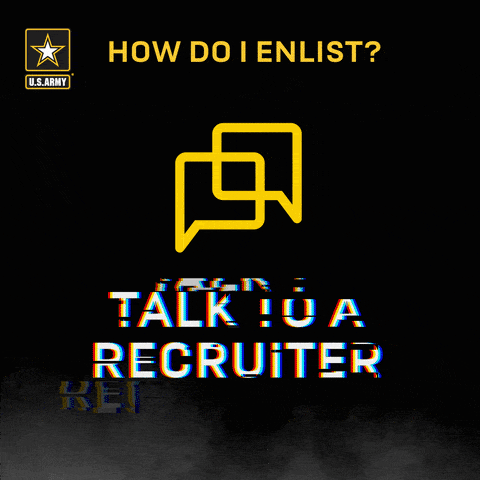
#giphy#college#flex#army#tattoos#mos#us army#benefits#goarmy#join army#armed forces#qualifications#army life#asvab#army jobs#enlistment process#recruiter questions
2 notes
·
View notes
Text










I finally accomplished one of my life-long dreams. After months of working with a recruiter and so much support from @minimoo94 I was finally able to enlist in the Army. I shipped off for OSUT at Ft Leonardwood on May 13th and after nearly 4 months of the hardest training I've ever done, I graduated not only as a Soldier, but also as a 12 Bravo, Combat Engineer, like my father before me. I'm so grateful for all the support from my friends and family, and I look forward to continuing my military career! Essayons!
#army#army life#basic training#osut#ait#ft leonardwood#12b#12bravo#combat engineer#sappers#i finally did it#accomplished one of my life long goals#essayons
4 notes
·
View notes
